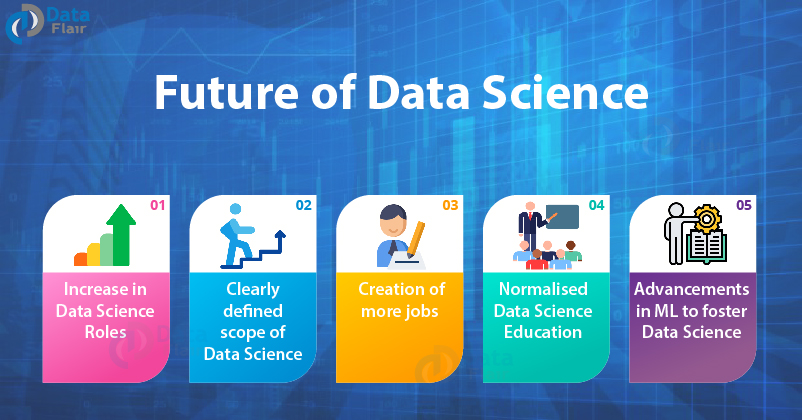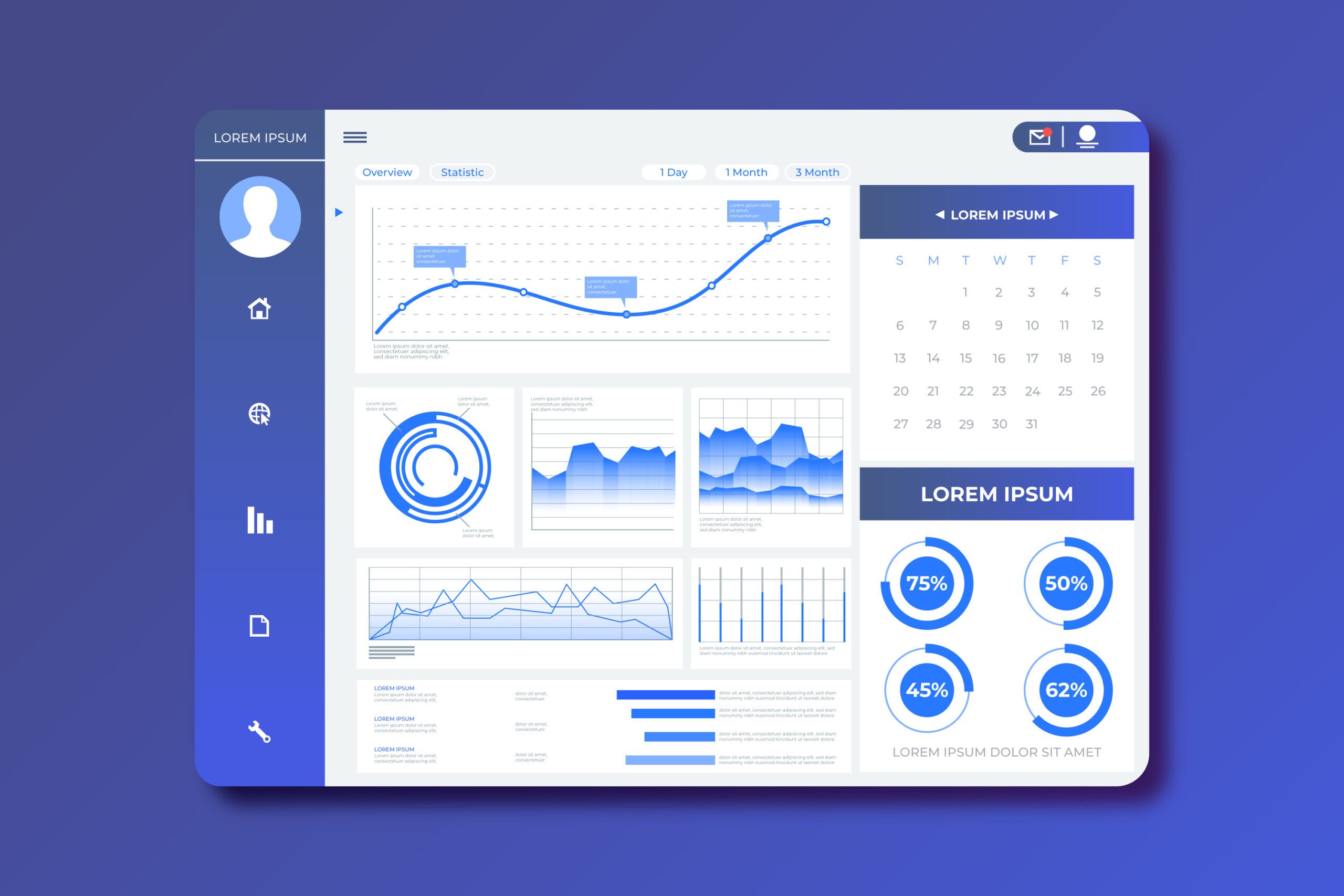In today’s digital age, data is being generated at an unprecedented rate. From social media posts and online transactions to sensor data and customer feedback, the amount of data being produced is growing exponentially. This deluge of data presents both challenges and opportunities for businesses across industries. To make sense of this vast amount of information and derive valuable insights, organizations are increasingly turning to data science.
Data science is a multidisciplinary field that combines statistics, mathematics, computer science, and domain knowledge to extract knowledge and insights from data. It involves collecting, cleaning, analyzing, and interpreting data to make informed decisions and solve complex problems. With the rapid growth of data, the demand for skilled data scientists has surged, and the future of data science jobs looks incredibly promising.

Credit: itstaffing.com
The Growing Demand for Data Scientists
The demand for data scientists has been steadily increasing over the past decade, and this trend is expected to continue in the future. According to the Bureau of Labor Statistics, the employment of data scientists is projected to grow by 31% from 2020 to 2030, which is much faster than the average for all occupations.
Several factors contribute to the growing demand for data scientists. Firstly, businesses are recognizing the importance of data-driven decision-making. They understand that by leveraging data, they can gain a competitive edge, optimize their operations, and drive innovation. Secondly, the proliferation of digital technologies and the Internet of Things (IoT) has led to an explosion of data sources. Organizations need data scientists to analyze and extract insights from this data to drive business growth. Lastly, there is a shortage of skilled data scientists. The gap between the demand and supply of data scientists is widening, making it a highly sought-after profession.
Emerging Trends in Data Science Jobs
Data science is a dynamic field that is constantly evolving. As technology advances and new data sources emerge, the role of data scientists is also evolving. Here are some emerging trends in data science jobs:
1. Machine Learning And Artificial Intelligence
Machine learning and artificial intelligence (AI) are revolutionizing the field of data science. These technologies enable computers to learn from data and make predictions or decisions without being explicitly programmed. As a result, data scientists are increasingly incorporating machine learning and AI techniques into their work. They are developing algorithms and models to automate tasks, improve accuracy, and uncover hidden patterns in data.
2. Big Data Analytics
The era of big data has arrived, and organizations are grappling with massive volumes of data. Data scientists play a crucial role in analyzing and extracting insights from big data. They use advanced analytics techniques, such as data mining, predictive modeling, and natural language processing, to uncover valuable information from large and complex datasets. The ability to work with big data sets and derive meaningful insights is becoming a vital skill for data scientists.
3. Ethical Data Science
As data becomes more pervasive and powerful, ethical considerations in data science are gaining importance. Data scientists need to be aware of the ethical implications of their work, such as privacy concerns, bias in algorithms, and the responsible use of data. Companies are increasingly looking for data scientists who can navigate these ethical challenges and ensure that data-driven decisions are fair, transparent, and unbiased.
4. Domain Expertise
Data science is a multidisciplinary field that requires a deep understanding of the specific domain or industry. Data scientists who possess domain expertise, such as healthcare, finance, or marketing, are highly valuable. They can apply their subject matter knowledge to extract meaningful insights and solve domain-specific problems. As data science continues to mature, domain expertise will become increasingly important for data scientists.
5. Collaboration And Communication Skills
Data scientists do not work in isolation. They collaborate with cross-functional teams, including business stakeholders, data engineers, and software developers. Effective communication and collaboration skills are essential for data scientists to understand business requirements, translate technical findings into actionable insights, and influence decision-making. Data scientists who can effectively communicate their findings and recommendations to non-technical stakeholders will be in high demand.
The Future Job Market for Data Scientists
The future job market for data scientists looks incredibly promising. As more and more organizations recognize the value of data-driven decision-making, the demand for skilled data scientists will continue to rise. Additionally, advancements in technology, such as AI and machine learning, will open up new opportunities for data scientists to leverage these technologies in their work.
According to a report by IBM, the demand for data scientists will exceed supply by 28% in 2021. This shortage of skilled professionals presents a significant opportunity for individuals looking to pursue a career in data science. Data scientists can expect attractive job prospects, competitive salaries, and a wide range of industries to choose from.
Industries such as healthcare, finance, e-commerce, and manufacturing are expected to have a high demand for data scientists. These industries generate massive amounts of data and can benefit greatly from data-driven insights. Additionally, emerging fields such as cybersecurity, genomics, and autonomous vehicles will also create new opportunities for data scientists.

Credit: data-flair.training
How to Prepare for a Career in Data Science
If you are interested in pursuing a career in data science, here are some steps you can take to prepare yourself:
- Acquire the necessary technical skills: Data science requires a strong foundation in statistics, mathematics, and programming. Familiarize yourself with programming languages such as Python or R, and learn how to use data manipulation and visualization libraries.
- Gain practical experience: Apply your skills to real-world problems by working on data science projects or participating in competitions such as Kaggle. This will help you develop a portfolio of work and demonstrate your abilities to potential employers.
- Continuously learn and stay updated: Data science is a rapidly evolving field. Stay updated with the latest trends, tools, and techniques by attending webinars, taking online courses, or joining data science communities.
- Develop domain expertise: Choose a specific industry or domain that interests you and acquire domain-specific knowledge. This will make you more valuable as a data scientist and help you understand the unique challenges and opportunities in that field.
- Improve your communication skills: Effective communication is crucial for data scientists. Work on improving your ability to convey complex technical concepts to non-technical stakeholders and present your findings in a clear and concise manner.
Frequently Asked Questions
What Are The Job Prospects In Data Science?
Job prospects in data science are excellent, with a high demand for skilled professionals in various industries.
How Much Do Data Scientists Earn?
Data scientists can earn competitive salaries, with the average salary ranging from $80,000 to $120,000 per year.
What Skills Are Required For A Data Science Job?
To excel in a data science job, you need a strong foundation in programming, statistics, machine learning, and data visualization.
What Industries Are Hiring Data Scientists?
Data scientists are in demand across industries, including finance, healthcare, retail, technology, and e-commerce.
Conclusion
The future of data science jobs looks incredibly promising. With the increasing demand for data-driven decision-making and the exponential growth of data, skilled data scientists are in high demand. Emerging trends such as machine learning, big data analytics, and ethical data science are shaping the future of the field. By acquiring the necessary skills, gaining practical experience, and staying updated with the latest trends, you can position yourself for a successful career in data science. So, if you have a passion for data and a curiosity to uncover insights, data science may be the perfect career path for you.







